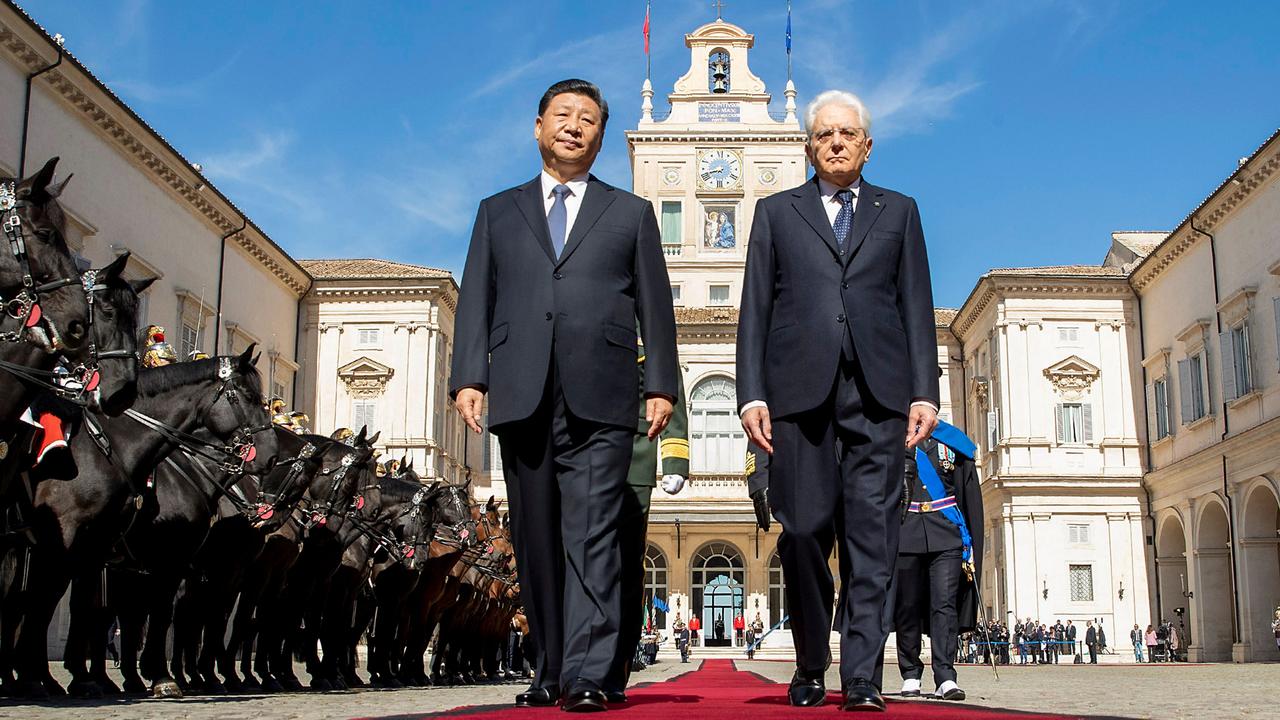Karl Marx is big again in Xi Jinping’s China
Xi Jinping is doubling down on Marxism to rally the nation around the Communist Party.

Much of the gloss of the budget is predicated on China’s continuing economic success.
But Tuesday night’s show would have come across as an exotic event in China itself, since the country doesn’t do detailed budgets. At least, not in public; even its giant corporations provide only generalised financial statements.
China does, however, do planning. Five-year plans, Made In China 2025 plans, Doubling the Economy plans, you name it. And hand in hand with centrally planned economies comes Karl Marx.
A lot of people wrote off Karl a tad too soon. Now he’s back with a bang, driving the thinking of the world’s big new superstate. Eat your heart out, Adam Smith.
Much of the coverage of the 200th birthday of Karl Marx, last Saturday, hinged on faded imagery from the Soviet Union, that failed 20th century superstate. Marx never visited Russia, about which he wrote quite a lot — but most of it negative.
Bizarrely, such reports missed the far more important point: that Marx and his thinking lie at the rejuvenation of the enormous new power that seems set to dominate the 21st century, China.
Which country sent Marx’s birthplace, Trier, a bronze statue — unveiled from beneath its red cloak at the weekend — to stand in the city’s centre? China.
Which country’s leader described its ruling communist party as “the loyal inheritor of the spirit of The Communist Manifesto”, in many ways Marx’s masterpiece? Of course, China.
Which country now requires Marxism to be taught to university students? China.
The core of China’s upstream economy — transport, communications, resources, energy and all other utilities, telecoms, and of course defence and media — remains firmly in state hands.
And all private companies beyond small retail, both locally and foreign-owned, are now expected to include Communist Party branches with an important say in strategic decision-making.
The Chinese Communist Party has probably never been as powerful as it is now, home and abroad. Its goal is to secure the pervasive nature of that power.
The country physically looks nothing like the Soviet Union, which was for so long perceived as the embodiment of Marxism. Its infrastructure and buildings are for the most part devastatingly “modern”. Its people travel and study widely overseas.
Yet Xi Jinping, whose core role is general secretary of the CCP, speaks constantly of communism and Marxism, the subject of his own doctorate.
Those who deal with China must treat the words of Xi with the utmost seriousness. He does not deal in trifles.
Last Friday, Xi said during a magnificent event honouring the German philosopher in the Great Hall of the People in Beijing: “Writing Marxism on to the flag of the CCP was totally correct ... Unceasingly promoting the signification and modernisation of Marxism is totally correct.”
During the celebration, Xi described Marx as “the greatest thinker in human history”, and instructed all party members to study Marxist theories as a “way of life” and a “spiritual pursuit”. He said Marxism should be the guiding ideology promoted in all campuses and classrooms.
“This grand gathering” in the Great Hall was conducted “with great veneration ... to remember Marx’s great character and historic deeds and to review his noble spirit and brilliant thoughts”.
Marxism, said Xi, was a “powerful ideological weapon for us to understand the world, grasp the law, seek the truth, and change the world”.
China Central TV has broadcast a five-part series titled Marx is Right, while a prominent state newspaper story last weekend was headlined “Let’s go back to Marx, and be people with ideals”.
On April 23 Xi, when presiding over a politburo group study session, stressed the necessity to “apply the scientific principles and the spirit of The Communist Manifesto to the overall planning of activities related to the great struggle, great project, great cause, and great dream”.
Xinhua ’s website headlined its lead story last weekend: “Xi Jinping: Deeply understand and master the power of Marxist truth.”
Leading China watcher Bill Bishop said: “Yes, doubling down on Marxism is a means to an end for the party, but that does not also mean that Xi himself is not an ardent Marxist whose fervour is only increasing as he sees a world evolving and fracturing in ways that would stir the loins of any sentient Chinese Marxist historical materialist.”
Jude Blanchette, one of the world’s top experts on Chinese communism, said: “Even if it offends our post-communist conventional wisdom, I think we have to begin accepting the notion that Xi Jinping actually believes in Marx and Marxism.” By embracing Marx even tighter, he added, “the party is contrasting itself with the ‘failing’ alternative political-economic model of the US”.
Xi told a group of foreign students this week that they must understand Chinese history to understand contemporary China — and that in particular they must understand Marxism.
He clearly prefers the state’s guiding hand to Adam Smith’s “invisible hand”. Unlike Deng Xiaoping, he does not appear to relish the company of swashbuckling entrepreneurs, and has recently been reining them in.
But nor is he fully wedded to the state owning all the means of production — as long as privately owned companies, both domestically and foreign owned, acknowledge the primacy of the party.
Professor Roland Boer of Newcastle University has been lionised in Xinhua this week as “the world’s top Marxism expert”, who it states “has a crush on China’s socialist model”. Boer spends half his time in China, Xinhua says, based at Renmin University in Beijing where he directs a research project, “Socialism in Power”.
Marxism in China is part of a living tradition, Boer says, like a tree taking root in a different soil and growing in its own way.




To join the conversation, please log in. Don't have an account? Register
Join the conversation, you are commenting as Logout